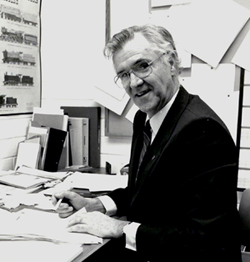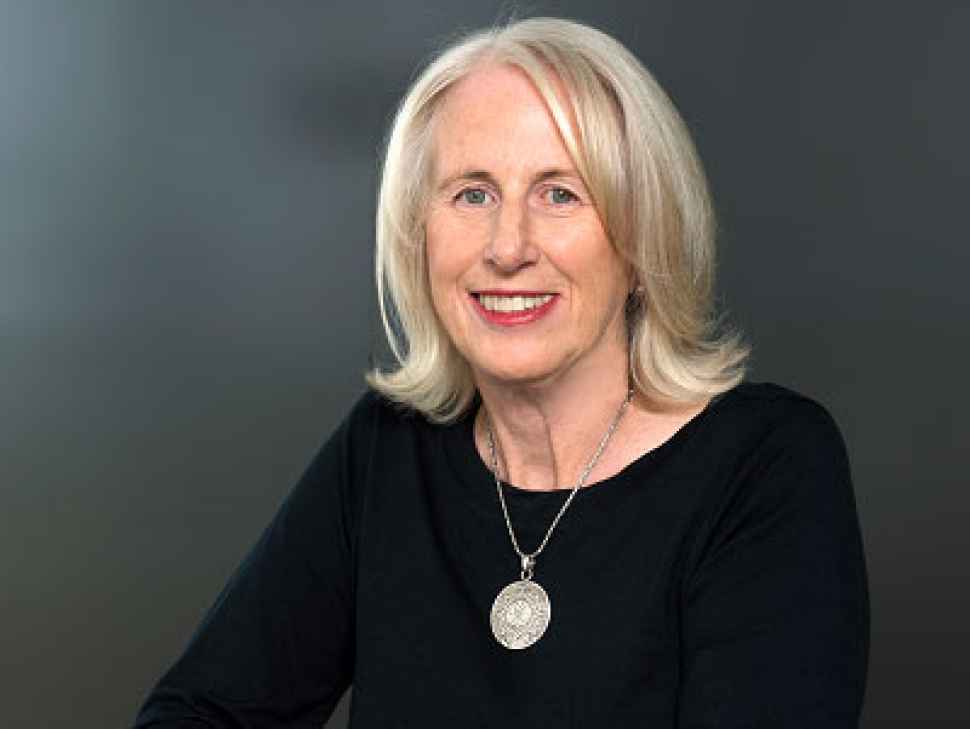
Southgate Institute for Health,
Society and Equity
The Southgate Institute for Health, Society and Equity leads high quality scholarship on the social and economic determinants of health and health equity.
In 2020 the Southgate Institute was designated as the World Health Organization Collaborating Centre on Social, Political and Commercial Determinants of Health Equity.
We conduct highly relevant research that informs practice and policy development in Australia and overseas, in relation to the promotion of population mental and physical health and health equity, and the reduction of social and economic exclusion.
The Institute's research focus is on what can be done about the underlying factors that determine the distribution of health and well-being outcomes. We produce research knowledge on why health inequities exist, what can be done about them and how population health overall can be improved.
Health Equity Hub
Translating our research: Rapid summaries for busy policy actors
The Health Equity Hub brings together policy briefs and summaries of key findings from our research to inform practice and policy in Australia and internationally.
Our research areas
Primary health care and community services
Primary health care and community services aims to investigate the quality of primary health care, health promotion and population health initiatives and has a focus on equity in health access and outcomes, social determinants of health, primary prevention, and health services and policy. This area of research is based on a participatory approach engaging policymakers, practitioners and primary health care clients within primary and community health services.
Aboriginal and Torres Strait Islander health
The Southgate Institute strives to conduct respectful, participatory research in partnership with Aboriginal and Torres Strait Islander health services, programs and communities. We also ensure the health of Aboriginal and Torres Strait Islander peoples is consistently prioritised in any social determinants and health service research we conduct. We regularly partner with the Poche Centre for Indigenous Health and Well-being.
Health equity and policy
Health equity and policy focuses on the scope and potential for public policies and programs to promote population health and health equity. Governments increasingly accept health promotion and reduction of disease through action on the determinants of health as a central and urgent goal of public policy. This area of research is based on a collaborative research approach aiming to produce policy relevant research.
Migrant and refugee health and wellbeing
At the Southgate Institute a multidisciplinary program of research has been examining the social determinants of health and wellbeing for people from migrant and refugee backgrounds. The aim of this research is to provide an evidence base for policy makers and service providers, and to contribute to innovative responses to improve health and well-being amongst people from migrant and refugee backgrounds. The work is highly collaborative with most projects involving staff from other universities and/or service providers, and undertaken in partnership with communities.
Centre for Research Excellence in the Social Determinants of Health Equity
The aim of the Centre for Research Excellence in the Social Determinants of Health is to advance understanding of how government policy can work more effectively to address the social determinants of health, so as to improve health and promote the fair distribution of health in society. Research focuses on a wide range of policy sectors that affect the social determinants of health including social security, health systems, trade, urban land-use, digital technologies and Indigenous health.
Punching Above their Weight Network
In September 2017 the Punching Above their Weight (PAW) research network was formed to advance thinking and research about why some countries do much better or much worse in terms of life expectancy than would be predicted by their economic status. Earlier studies have shed some light on these issues, however, they have primarily focused on the role of health services, very little is known about the wider social, environmental, political and commercial determinants of these patterns. Similarly, the ways in which social and economic inequities affect population life expectancy are little understood. This research network has brought together researchers, policy actors, civil society actors from across the world to understand what drives good or poor performance in promoting population health and health equity.
Who we are
| Researchers and support staff |
Title |
|---|---|
| Dr Julia Anaf | Research Fellow |
| Dr Matt Fisher | Senior Research Fellow |
| Associate Professor Tamara Mackean | Associate Professor |
| Dr Michael McGreevy | Research Associate |
| Dr Connie Musolino | Research Fellow |
| Dr Kim O'Donnell | Research Fellow |
| Dr Emma Tonkin | Research Fellow |
| Dr Helen van Eyk | Senior Research Fellow |
| Dr Moira Walsh | Research Fellow |
| Dr Annabelle Wilson | Senior Research Fellow |
| Roland Wilson | Research Associate |
| Alice Windle | Research Associate |
| Associate Professor Anna Ziersch | Senior Research Fellow |
| Joanne Flavel | Senior Researcher |
| Liz Withall | Research Assistant |
| Madison Shakespeare |
Research Assistant |
| Clare Beard | Research Assistant |
| Sue Gibbons |
Research Support Assistant |
| Laura Bahnisch | Research Project Support Officer |
| Name | Role |
|---|---|
| Professor Fran Baum | Director, Southgate Institute |
| Dr Toby Freeman | Senior Research Fellow, Southgate Institute |
| Professor Elizabeth Handsley |
Academic Status Representative |
| Professor Colin MacDougall |
College of Medicine and Public Health |
| Professor James Harrison |
College of Medicine and Public Health |
| Professor Sharon Lawn | College of Medicine and Public Health |
| Dr Sophie Pointer |
Senior Research Fellow, College of Medicine and Public Health |
| Dr Yvonne Parry |
College of Nursing and Health Sciences |
| Dr Stefania Velardo |
College of Education, Psychology and Social Work |
| Dr Esther Erlings |
College of Business, Government and Law |
| Dr Sarah Cohen-Woods |
Matthew Flinders Fellow, College of Education, Psychology and Social Work |
| Associate Professor Udoy Saika |
College of Humanities, Arts and Social Sciences |
| Professor Sharyn Roach Anleu | Matthew Flinders Distinguished Professor, College of Humanities, Arts and Social Sciences |
| Helen Hazelwood | Coordinator, Southgate Institute |
| Name | About |
|---|---|
| Professor Sir Michael G Marmot (Inaugural Chair) |
MBBS, MPH, PhD, FRCP, FFPHM, FMedSci, FBA Michael Marmot is an internationally acclaimed researcher who has led a research group on health inequalities for more than 30 years. In 2000 he was knighted by Her Majesty The Queen for services to Epidemiology and understanding health inequalities. |
| Pat Anderson AO |
Ms Pat Anderson joined the Southgate International Advisory Board in December 2010. Ms Anderson is an Alyawarre woman known nationally and internationally as a powerful advocate for disadvantaged people, with a particular focus on the health of Australia’s First Peoples. She has extensive experience in all aspects of Aboriginal health, including community development, advocacy, policy formation and research ethics. |
| Dr Lynn Arnold AO | Dr Lynn Arnold served as Chief Executive of Anglicare SA from March 2008 until June 2012. Before this he worked with World Vision International for eleven years. Between 1979 and 1994 he served as a member of the South Australian Parliament including over 11 years in Cabinet. His service in government included ten years serving in a wide range of senior ministries (including Education, State Development and Agriculture), he also served as Premier in 1992-1993. |
| The Hon Fred Chaney AO |
Fred Chaney has a long and prestigious career as a practicing lawyer on issues of social justice and indigenous rights and affairs. He served in the Senate from 1974 until 1990 and was Leader of the Opposition in the Senate from 1983 to 1990. He was Chancellor of Murdoch University from 1995 until 2003. He is the Chair of Desert Knowledge Australia and on the Board of Directors of Reconciliation Australia. |
| Monsignor David Cappo AO |
Monsignor David Cappo is a Catholic Priest and social policy leader. A qualified social worker, Monsignor Cappo is Vicar General of the Archdiocese of Adelaide and was Chair of South Australia’s first Social Inclusion Board. He served as Commissioner for Social Inclusion from May 2006 until September 2011. Monsignor Cappo was made an Officer in the Order of Australia – the nation’s second-highest honour – in the 2007 Australia Day Honours. |
| Professor Julian Disney AO |
Julian Disney is a Professor and Director of the Social Justice Project at the University of New South Wales. He is currently Chair of the Australian Press Council and National Co-Chair of Anti-Poverty Week. In 1994, Julian Disney was appointed an Officer of the Order of Australia (AO) for services to the development of economic and social welfare policy, and to the law. In 1999, he was awarded an Honorary Doctorate of Laws (LL.D) by the University of New South Wales. |
| Dana Shen | Dana is Aboriginal/Chinese and a descendant of the Ngarrindjeri people in South Australia, and has a passion for working with Aboriginal people and communities. Dana has had extensive experience in the public sector, in health, child protection and Aboriginal specific services and policy. She began her work as a youth community development officer in both the Adelaide Hills and the Murray Lands. Most recently Dana was Director of TACSI’s Family by Family program supporting the growth of the program in South Australia and into Western Sydney, NSW and assisted with the implementation and evaluation of the Weaver’s program. |
| The Hon Lea Stevens |
Hon Lea Stevens joined the Southgate International Advisory board early in 2011. She is currently Director – Northern Connections was and was previously a Member of the South Australian State Parliament for sixteen years, including four years as Minister for Health and Minister assisting the Premier in Social Inclusion. |
 The Southgate Institute is named after Associate Professor Deane Oakford Southgate AM FRACGP, FACOM.
The Southgate Institute is named after Associate Professor Deane Oakford Southgate AM FRACGP, FACOM.
Associate Professor Southgate was Head of the then Department of Primary Care and Community Medicine in the School of Medicine at Flinders University at the time of his death in 1991.
Dr Southgate was heavily involved in public health, health promotion and community medicine over the course of his career. His role at the University was in academic general practice and its role in community medicine and primary health care. His involvement saw the recognition of the growing importance of general practice, both as a key component of the health service and as an academic discipline.
He was passionate about general practice and the important role it played in communities. As a result, he continued his role as a GP at the Southern Clinic general practice, Clovelly Park, where he was a partner from 1955 until his death. Through his work at the practice, he saw the need for community-based preventative medicine and was instrumental in the establishment of the Clovelly Park Community Health Centre (which has now been incorporated into the Marion GP Plus Centre), of which he was its first Director in 1974. Through this involvement, the South Australian Community Health Centres Association was established and in his role as its first President, he was an inaugural board member of the Noarlunga Health Service.
With the location of his general practice in an industrial area along South Road, Dr Southgate became very interested in occupational medicine and was one of the pioneers of the Australian College of Occupational Medicine. He was the medical officer to the joint Mobil-Esso refinery at Port Stanvac and saw occupational medicine as contributing an essential part of the health of people at work. Part of the role of the Clovelly Park Health Centre involved providing occupational health services to the small industrial businesses in the local community.
Dr Southgate was heavily involved with the Service to Youth Council of South Australia (SYC) in its developmental and early stages. This council continues to have a vital role today as it supports and assists young people. Focussing on 'at risk' youths, it independently provides community training and employment services.
Dr Southgate was very committed to public health but, in particular, to that of health promotion and disease prevention. His vision was to set up structures to support people in making safe, sensible choices and taking control of their lives.
Southgate membership
Join the Southgate network as an individual or organisation and you'll receive early notification of our events, some of which are for members only.
You may also be eligible for support with grant applications, event management or other activities contributing to the aims of the Southgate Institute.
Become a member
Submit the appropriate form below to enquiries.southgateinstitute@flinders.edu.au
- Full membership application (PDF) - for Flinders University staff and academic status holders.
- Associate membership application (PDF) - if you do not hold academic status at Flinders University.
Resources
Planning and Evaluation Wizard (PEW)
The Planning and Evaluation Wizard (PEW) is designed to allow you simple access to planning and evaluation tools that are relevant to your health promotion or primary health care project.
Southgate Digital Equity Tool
The purpose of the Southgate Digital Equity Tool is to assist policy makers and practitioners in making informed decisions about the way they engage consumers in health services and programs. It will guide your thinking around the impact of traditional and digital communication on different population groups, with a focus on the impact of shifting to digital engagement with consumers.
Corporate Health Impact Assessment
As the adverse health and equity impacts of transnational corporations’ practices become central public health concerns, the need for a methodology to evaluate their impact becomes critical. The Corporate Health Impact Assessment follows the standard HIA steps of screening, scoping, identification, assessment, decision-making and recommendations.
Southgate Orations
The Southgate Institute holds a number of events and activities throughout the year. Our flagship event is the Annual Oration.
Southgate presentations and reports
Read reports we have published through the Southgate Institute and view presentation recordings.
![]()
Sturt Rd, Bedford Park
South Australia 5042
South Australia | Northern Territory
Global | Online



